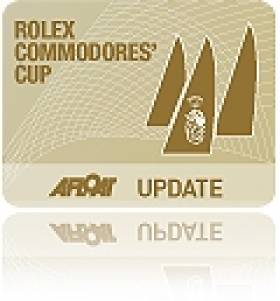Displaying items by tag: International Jury
British Yacht Penalised in Commodores' Cup
A British yacht in the Rolex Commodores' Cup and one of Ireland's main rivals for the title has been penalised for breaking a Cup rule that limits the number of professional crew (Group 3) that may sail on each boat.
Quokka 8, a class two entry, is part of Team GBR Red, the first of three Royal Yachting Association (RYA) teams in the competition on the Solent this week.
The team lies second overall to Ireland who have established a runaway lead in the five nation event.
The International jury found Quokka had exceeded the number of Group 3 sailors allowed.
The Cowes based Commodores' Cup is strongly Corinthian: only two Group 3 sailors are allowed on the Class 1 boats and just one aboard Class 2 and 3 entries.
After a hearing on Monday evening, a 10% penalty was imposed on the top British yacht for the first four races of the series.
Quokka 8 is skippered by Peter Rutter, a former Commodore of the Race Organisers, the Royal Ocean Racing Club (RORC).
Rutter is the team captain of GBR Red.
Quokka is currently at sea competing in the event's offshore race and is expected back in Cowes with the rest of the 30–boat fleet this afternoon.
After a recalculation of the overall points, to include the penalty on Quokka, Team GBR Red stay second behind Ireland but all that may change after the finish of the 180 mile race this afternoon.
The official Jury Decision is available to download below





























































